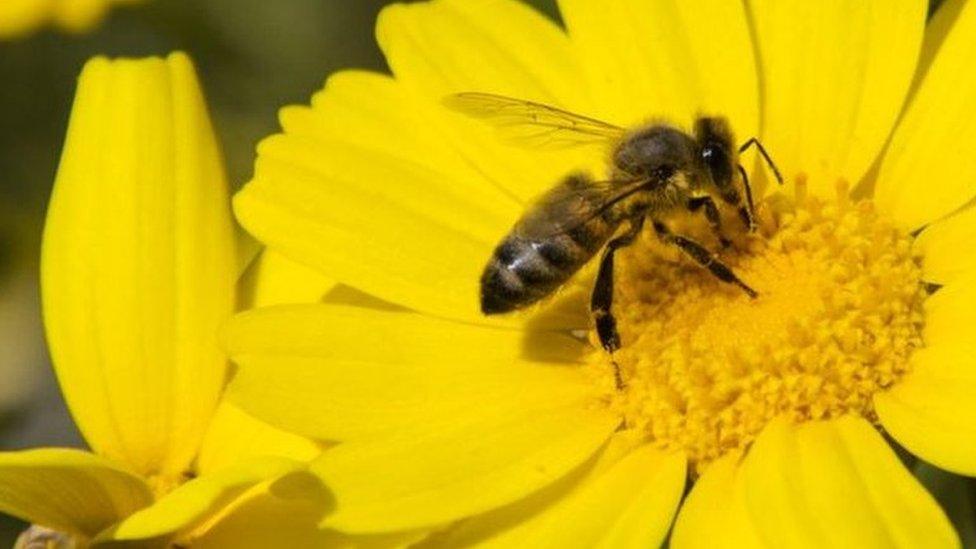Suffolk beekeeper creates 18-mile bee corridor along coast
- Published
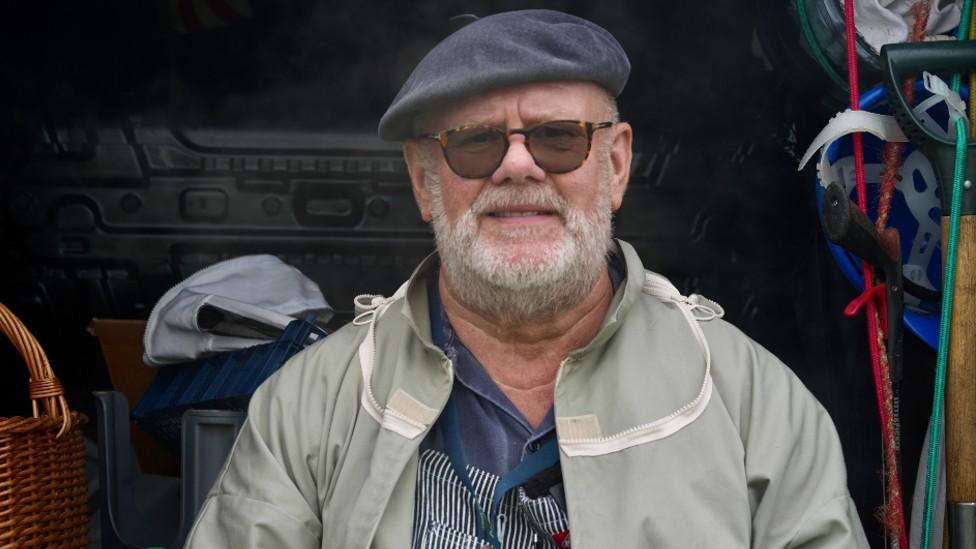
Steve Barrett started his career in beekeeping after leaving the police
A police officer-turned-beekeeper has told how he has spent a decade creating a 18-mile (29km) bee corridor to help the insects to thrive.
Steve Barrett, 70, of Lowestoft, has made the route along the Suffolk coast, where he has up to 40 hives and 3.2 million bees.
"Bees are incredible pollinators and we need them," he said.
"I'd like to see more apiaries on brownfield sites to use them for something positive."
Bee corridors are areas that bees and other pollinators travel through, picking up the nectar they need to take with them to the next habitat patch.
Mr Barrett, who runs Bees on the Coast, has seven apiaries in all.
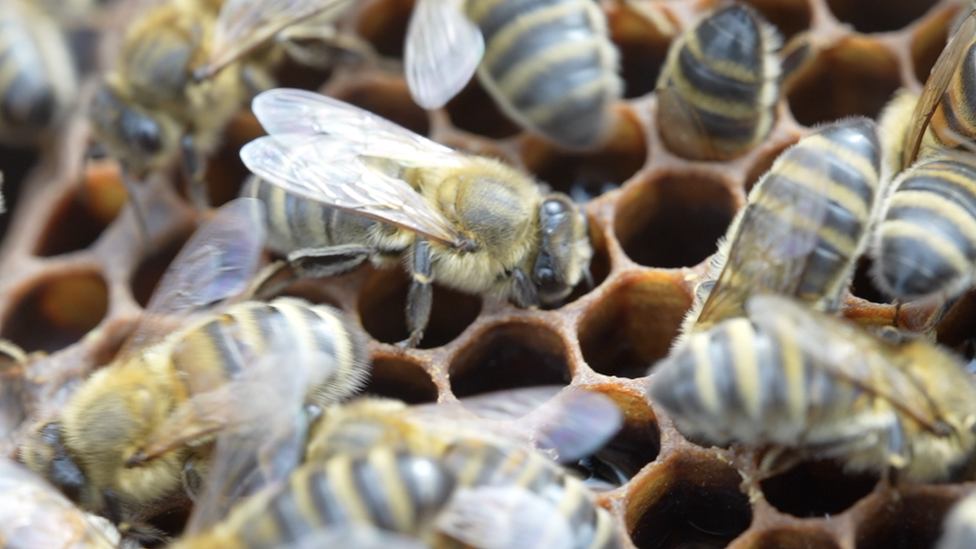
Mr Barrett's passion for bees was inspired by his deputy head teacher at school
His hives have been modelled to look like Southwold or Lowestoft beach huts, and made "sustainably" using scrap wood from the huts.
Each can house up to 80,000 bees.
Mr Barrett's interest in bees was sparked at school in Dereham, Norfolk, by his deputy head, Harold Whitby.
"For a house point, if you could get past his bees after they'd been inspected without getting stung, you got one - sadly I never made it," he said.
"The pleasure of beekeeping is the excitement - if I wasn't excited every time I saw the queen then I'd give up."
Mr Barrett, who opened his first hive along the corridor with brewer Adnams of Southwold, is working with Michelin-starred chefs including Raymond Blanc, teaching them how to tend hives and extract fresh honey, meaning less plastic, delivery miles and the creation of homes for bees.
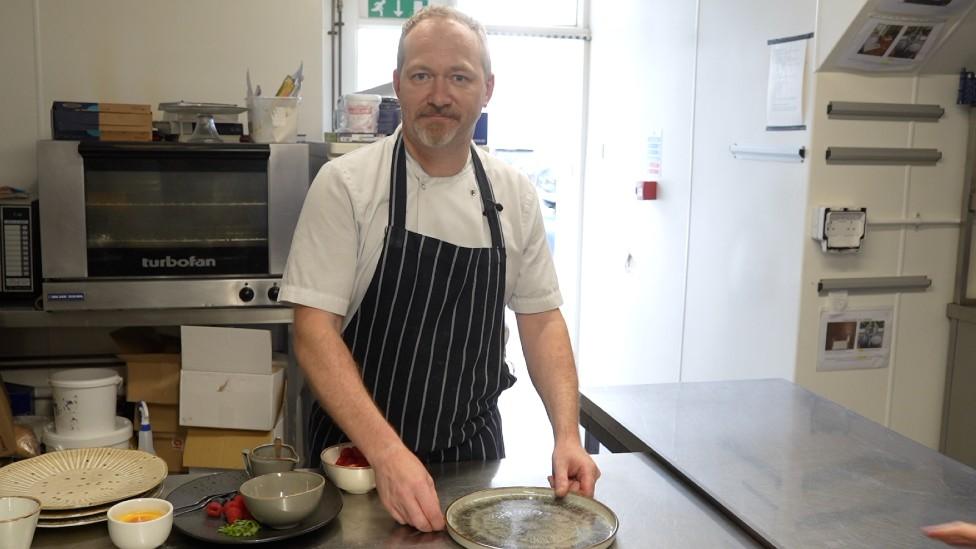
Chef Robert Mace will use about a tonne of honey from Mr Barrett this year
Robert Mace, group chef at The Crown in Southwold, will order about a tonne of honey from Mr Barrett's bees this year.
"The difference is that we have 100% traceability on this - we know where it's from... you can absolutely taste the difference from a generic, store-bought honey," he said.
Mr Barrett will now spend the winter months making new hives in his workshop before returning to the bees in March.

Follow East of England news on Facebook, external, Instagram, external and X, external. Got a story? Email eastofenglandnews@bbc.co.uk, external or WhatsApp us on 0800 169 1830
- Published23 June 2023
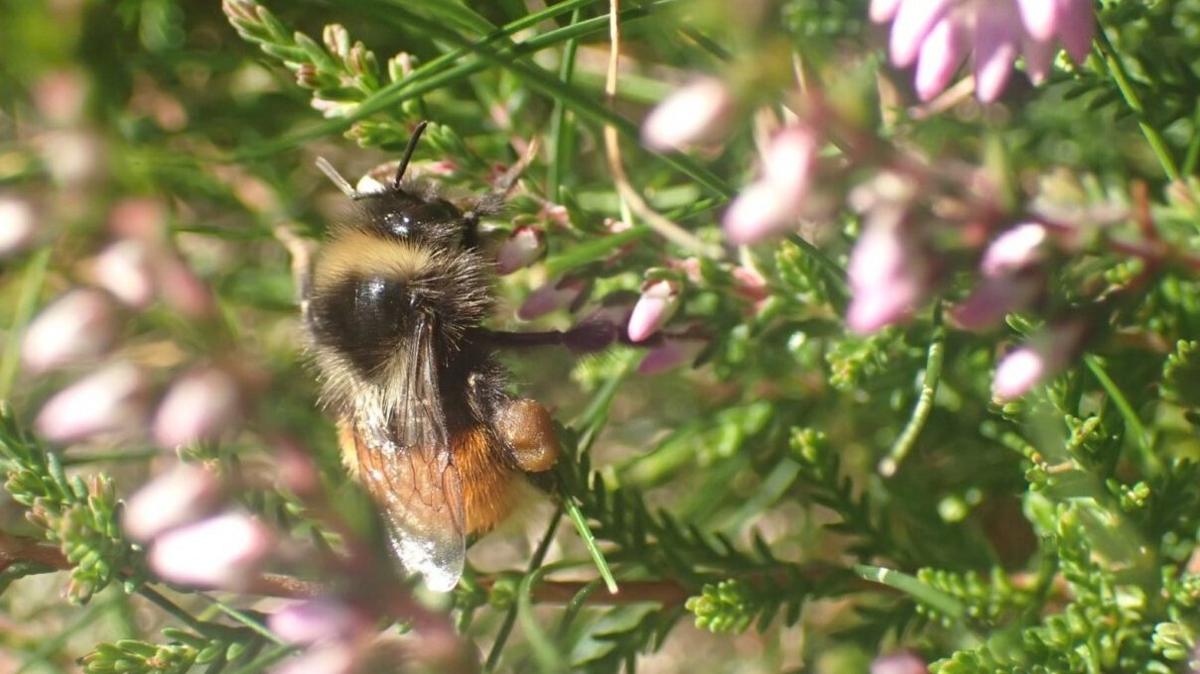
- Published7 May 2019
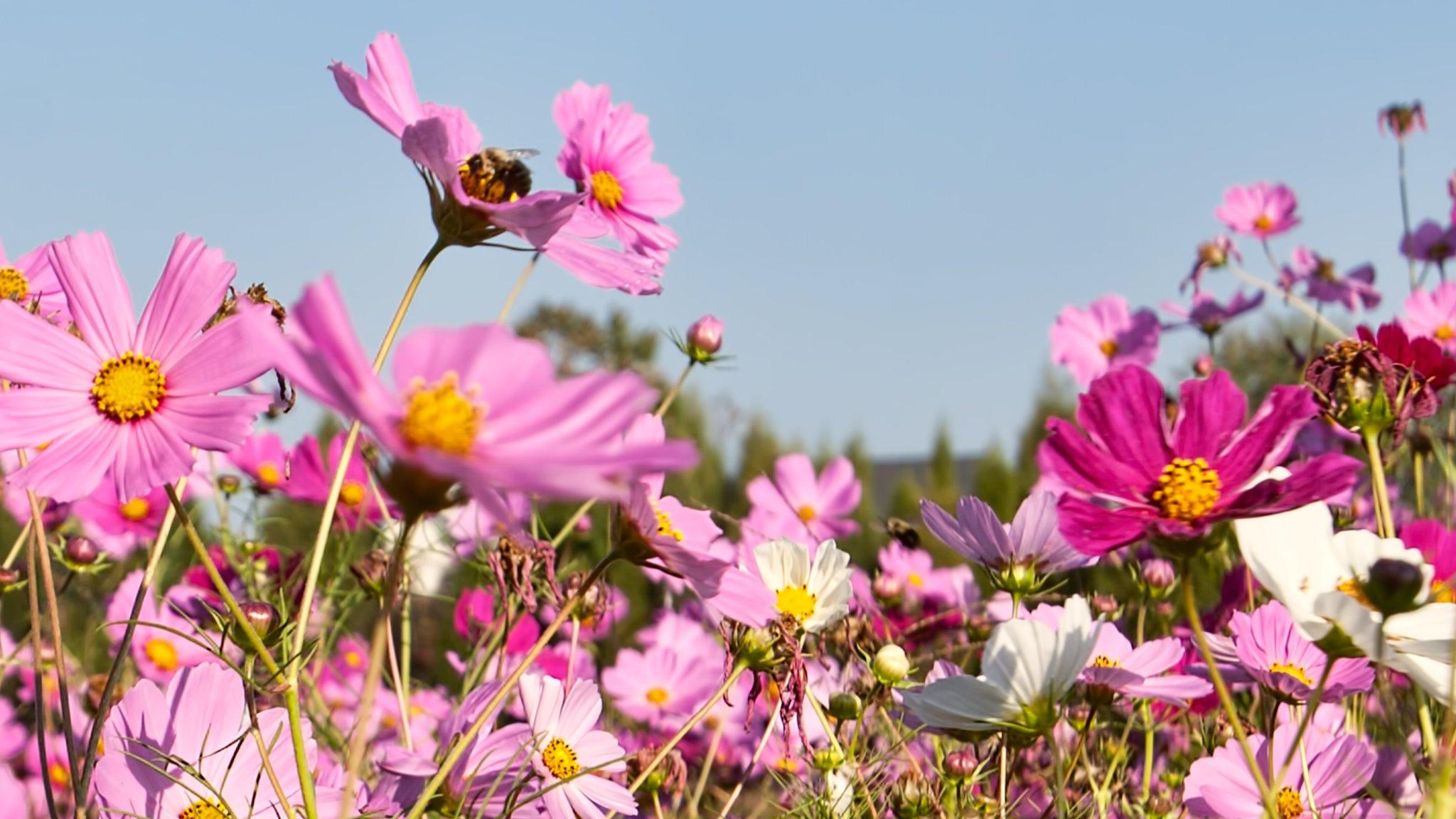
- Published7 May 2019
